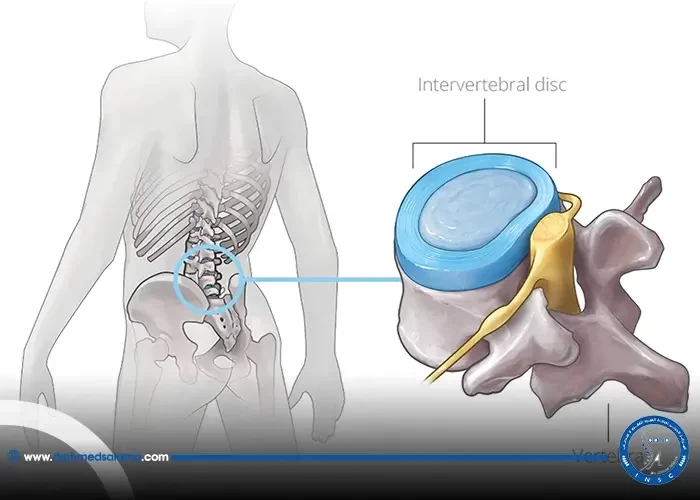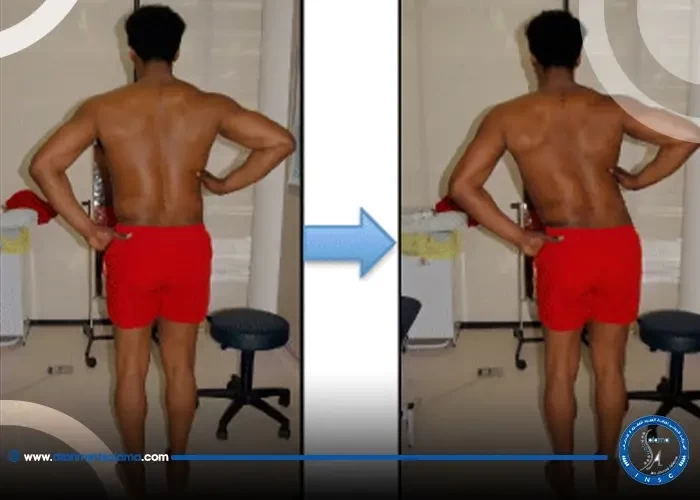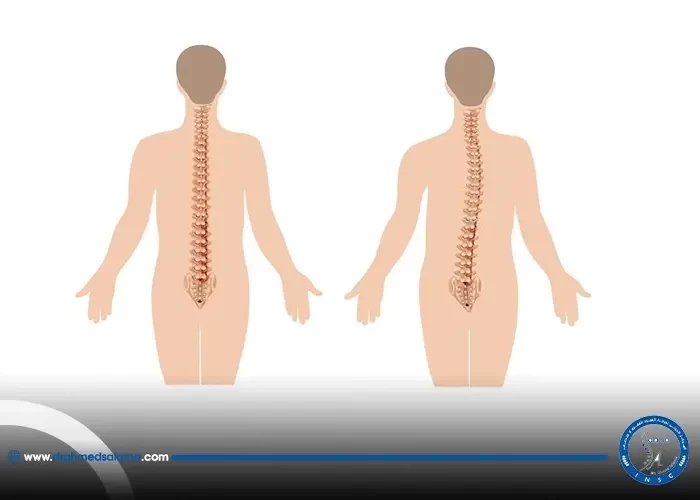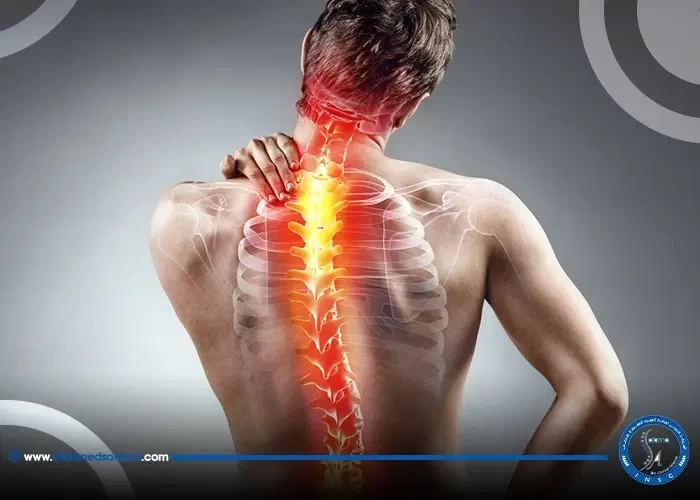Nasr City, 52 El Tayaran Street, in front of the Health Insurance Hospital

Harmful effects of targeted therapy

The risks of targeted therapy may be a concern for many when considering modern treatment options for brain tumors, especially with the availability of multiple types of targeted therapy. With the spread of this technology, questions about the details of this procedure are becoming more prevalent. When do the results of targeted therapy appear? How long does targeted therapy last? Is targeted therapy painful? Does cancer recur after targeted therapy?
In this article, Dr. Ahmed Ibrahim Salama, a consultant neurosurgeon and spine surgeon, explains everything you need to know about targeted therapy, including the risks, advantages, and types of targeted therapy. We'll also list the prices of targeted therapy in Egypt, explain the difference between chemotherapy and targeted therapy, and explain other details. Just keep reading to the end...
The risks of targeted therapy
Although targeted therapy focuses on specific chemicals within cancer cells and reduces damage to healthy cells compared to other brain tumor treatment techniques, it may be accompanied by some side effects that vary from person to person depending on the type of medication, the dose, and the patient's health condition. Side effects of targeted therapy include:
Constant fatigue and exhaustion.
Chronic headaches and concentration problems.
Loss of appetite, nausea, or vomiting.
Diarrhea and gastrointestinal disturbances.
Mouth and throat infections and skin problems such as rashes.
High blood pressure or fluid buildup in the body.
Low white blood cell count, which increases the risk of infection.
Liver or heart problems.
Hormonal changes in women.
In general, choosing a qualified, specialized doctor with experience in treating brain tumors can significantly reduce the side effects of targeted therapy. That's why we recommend Dr. Ahmed Ibrahim Salama, a consultant neurosurgeon and spine surgeon, to ensure a safe and effective treatment plan, with close follow-up to support your health and achieve the best results.
Advantages of Targeted Therapy
Targeted therapy is one of the latest technologies used in the treatment of brain tumors. Despite the aforementioned side effects, it provides high precision in targeting tumor cells and minimizing damage to healthy cells, enhancing treatment effectiveness and improving patients' quality of life. Its most prominent advantages include:
Inhibits signals that stimulate the growth and proliferation of cancer cells.
Increases the chances of recovery and reduces the risk of tumor progression.
Reduces the chances of tumor spread to other parts of the body.
Helps reduce tumor symptoms and treatment side effects, such as pain, fatigue, and hair loss.
Improves patients' quality of daily life.
Reduces the likelihood of cancer recurrence after treatment.
Supports radiation or surgical treatment and enhances the effectiveness of the results.
Because achieving all of these benefits requires high medical precision and skill to ensure avoiding common side effects of targeted therapy, don't hesitate to book an appointment with Dr. Ahmed Ibrahim Salama, Consultant Neurosurgeon and Spine Surgeon, to obtain a safe and effective treatment plan tailored to your condition.
The Difference Between Chemotherapy and Targeted Therapy
After discussing the side effects of targeted therapy, some people wonder about the difference between chemotherapy and targeted therapy. The truth is that the difference lies in the way each affects cancerous and healthy cells. Chemotherapy is the most widely used treatment for oncology. It relies on targeting rapidly dividing cells, including cancerous cells and normal cells, such as those in the digestive system and hair follicles. This can cause severe side effects such as nausea, hair loss, and fatigue, and makes some patients unable to take the required doses effectively.
Targeted therapy is the latest technology used as an adjuvant treatment for both benign and malignant brain tumors. It targets specific characteristics of cancer cells, such as genetic mutations or specific proteins, and works to block signals that stimulate tumor growth without significantly harming healthy cells. This reduces the severity of side effects compared to traditional chemotherapy and is an important part of modern treatment strategies for brain tumors. However, in some cases, targeted therapy may need to be combined with chemotherapy to enhance its effectiveness against the tumor.
If you're still searching for the difference between chemotherapy and targeted therapy and how to choose the right treatment to minimize the harm of targeted therapy or other brain tumor treatment methods and achieve the best results, we recommend you book a consultation with Dr. Ahmed Ibrahim Salama to receive an accurate diagnosis and a personalized, safe treatment plan for your case.
Types of Targeted Therapy
There are several types of targeted therapy, each targeting cancer cells using a specific mechanism to minimize damage to healthy cells. These include:
Angiogenesis inhibitors: These prevent the formation of new blood vessels that feed the tumor, limiting the growth of cancer cells.
Monoclonal antibodies: These bind to specific receptors on the surface of cancer cells to disrupt their growth or deliver toxic drugs to them.
Proteasome inhibitors: These disrupt vital cancer cell functions, leading to their specific death.
Signal transduction inhibitors: These alter cancer cell signals to restrict their growth and division without affecting normal cells.
Because choosing the appropriate type of treatment depends on accurate medical expertise to minimize the risks and increase its effectiveness, we recommend booking a consultation with Dr. Ahmed Ibrahim Salama to accurately diagnose your condition and determine the appropriate treatment.
How long does targeted therapy last?
The duration of targeted therapy varies from patient to patient depending on several factors. It is not possible to specify a uniform number of targeted therapy doses and duration for all cases. Rather, the treatment plan depends on a careful assessment of each patient's health condition to ensure effectiveness and minimize the risks of targeted therapy. Factors that determine the duration of treatment include:
The type of tumor and its location within the brain.
The stage of the disease and its extent of spread.
The body's response to treatment and tolerance to the medication.
The prescribed doses of targeted therapy and the type of medication used.
The presence of concomitant diseases or health conditions that may affect the treatment plan.
If you are looking for a specific answer to "How long does targeted therapy last?", do not hesitate to book a consultation with Dr. Ahmed Ibrahim Salama to receive an accurate assessment and accurately determine the duration of treatment you need to avoid potential risks of targeted therapy.
Is targeted therapy painful?
Targeted therapy itself is not painful. It is often administered via oral tablets or intravenous injections. However, some patients may experience minor discomfort during the injection or experience side effects such as rashes or fatigue.
However, managing these symptoms is possible and effective with follow-up with a specialized medical team. Therefore, it is recommended to schedule a consultation with Dr. Ahmed Ibrahim Salama to ensure a comfortable and safe treatment experience and minimize any potential side effects.
Targeted Therapy Prices in Egypt
Targeted therapy prices in Egypt vary depending on several factors that affect the final cost. These factors include:
The type of medication used in the treatment plan.
The duration of treatment and the number of doses of targeted therapy required.
The patient's general health condition and response to treatment.
The chosen medical center or hospital and the level of services provided.
The availability of complementary treatments such as surgery, chemotherapy, or concomitant radiation.
Therefore, if you would like to know the exact prices of targeted therapy in Egypt, do not hesitate to book a consultation appointment today with Dr. Ahmed Ibrahim Salama to assess your case and determine the appropriate treatment cost.
When do the results of targeted therapy appear?
The answer to the question "When do the results of targeted therapy appear?" varies from patient to patient depending on the type of tumor, the stage of the disease, the body's response to the medication, the doses of targeted therapy used, and the patient's general health. However, there are some positive results that can be observed:
Stopping or slowing the growth of the tumor, reducing the pressure of cancer cells on surrounding tissues.
Gradual improvement in cancer-related symptoms, such as pain and fatigue.
Increasing the effectiveness of primary treatments such as surgery or chemotherapy, when used in conjunction with targeted therapy.
Stabilizing the patient's general health and improving the quality of daily life.
To ensure effective results for your case and avoid the risks of targeted therapy or other brain tumor treatment methods, don't hesitate to book an appointment now with Dr. Ahmed Ibrahim Salama. He will receive an accurate diagnosis, monitor progress, and adjust the treatment plan to suit your condition.
Does cancer recur after targeted therapy?
Although targeted therapy significantly reduces tumor growth and precisely targets cancer cells, the possibility of cancer recurrence cannot be completely ruled out. The chances of recurrence depend on several factors, such as the type of tumor, the genetic mutations present in the cancer cells, the body's response to treatment, and the length of follow-up after treatment. However, careful monitoring and continuous follow-up with a specialist and expert in treating brain tumors helps detect any signs of relapse early, increasing the chances of rapid intervention and successful treatment.
For this reason, don't hesitate to choose Dr. Ahmed Ibrahim Salama, as he guarantees you accurate follow-up and a customized treatment plan that enhances your chances of controlling the tumor and effectively reduces the likelihood of recurrence.
The Best Doctor for Brain Tumor Treatment in Egypt
When dealing with the challenges of brain tumors, whether benign or malignant, choosing the right doctor is crucial to achieving the best results and minimizing potential complications, such as the side effects of targeted therapy or the side effects of other treatments. In Egypt, Dr. Ahmed Ibrahim Salama is one of the most prominent names in this field, thanks to his extensive experience and reliance on the latest medical technologies.
The most prominent reasons why Dr. Ahmed Salama is the first choice for treating brain tumors include:
He has extensive experience as a consultant neurosurgeon and spine surgeon.
He relies on the latest diagnostic techniques to ensure accurate determination of the size and location of the tumor.
He is keen to use advanced treatment tools and techniques to safely and effectively remove both benign and malignant tumors.
He has extensive experience in non-surgical treatments, such as radiation therapy and tumor-specific chemotherapy.
He provides close follow-up care for patients to minimize the side effects of targeted therapy and complications associated with other treatments.
He provides comprehensive healthcare, including post-surgery or post-treatment recovery and rehabilitation.
He provides comprehensive consultations and ongoing follow-up to ensure the effectiveness of treatment and reduce the likelihood of tumor recurrence.
In conclusion, targeted therapy is an effective adjuvant technique in the treatment of brain tumors. It focuses on precisely targeting cancer cells while minimizing damage to healthy cells. Despite its significant benefits, it is essential that the patient be closely monitored to minimize the potential side effects of targeted therapy and ensure its safe combination with other treatment modalities, such as chemotherapy or surgery, depending on the tumor's condition and the body's response. Therefore, working with a specialist like Dr. Ahmed Ibrahim Salama is an essential step in obtaining a personalized treatment plan that balances effectiveness and safety while improving quality of life. Book your consultation now to assess your condition and develop the best treatment plan for you.
What are the side effects of targeted therapy?
Targeted therapy may cause some side effects depending on the type and dose of the drug, such as fatigue, loss of appetite, nausea or vomiting, gastrointestinal disturbances, skin problems such as rashes, and sometimes changes in blood pressure, liver function, and heart function.
Is targeted therapy considered chemotherapy?
No, targeted therapy is different from traditional chemotherapy. It does not rely on toxins that attack all rapidly dividing cells. Instead, it focuses specifically on characteristics of cancer cells, such as genetic mutations or defective proteins, minimizing damage to healthy cells and reducing the severity of side effects compared to traditional chemotherapy.






